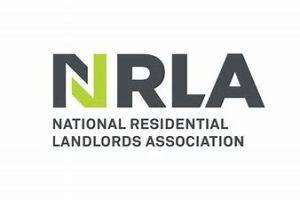Paul Clampin is chief lending officer of Landbay
The government has announced plans to introduce new requirements for the environmental performance of rented property by 2025 – and the clock is ticking. But some landlords are becoming increasingly concerned about what they see as a lack of clarity about implementation of the proposals.

Last month, the National Residential Landlords Association (NRLA) said that an urgent priority for either Rishi Sunak or Liz Truss as the incoming prime minister would be to address what it described as a “supply crisis” in the private rented sector.
The NRLA pointed to research showing that there had been an increase in the number of landlords planning to cut the number of properties they would let over the next 12 months.
At the same time, however, landlords said that demand for rental property was soaring. 60% of landlords in England and Wales said that demand had increased in the second quarter of this year, compared to 39% who reported such an increase a year earlier.
Landlords support government goals
Many landlords recognise the need to improve the environmental performance of rental property, and support the government’s goal of raising the Energy Performance Certificate rating to C for new rental properties to C by April 2025. It wants to introduce the same standard for existing rental properties by 2028.
 The NRLA points out that the target has been reinforced repeatedly by the government. But there is a lack of certainty for landlords because the requirement has not yet been put into law. The NRLA argues that even though the government’s consultation closed over a year ago no official response has ever been issued or legislation tabled.
The NRLA points out that the target has been reinforced repeatedly by the government. But there is a lack of certainty for landlords because the requirement has not yet been put into law. The NRLA argues that even though the government’s consultation closed over a year ago no official response has ever been issued or legislation tabled.
Landlords argue that the lack of clarity is creating difficulty and anxiety. They have been expecting even stricter targets for environmental performance but these have not materialised.
Adopting a carbon-cutting approach could spell the end for domestic gas, even though electrical heating as an alternative could drive tenants into fuel poverty. Alternatively, if the government prioritises tackling fuel poverty over cutting carbon, it would throw a lifeline to landlords with efficient gas boilers – but cast doubt over the government’s commitments to its targets.
Greater certainty
With the announced deadlines looming, landlords urgently need greater certainty. The cost of materials and availability of skilled labour are high and scarce respectively.

Lenders have a part to play in providing finance and lower-cost green mortgages, but landlords also need:
• Clarity over what needs to be done and when. There are conflicting pressures but the NRLA says that uncertainty is damaging to a sector needing investment.
• Time to make the necessary changes, particularly given the shortages of materials and labour. The NRLA is now arguing that the goodwill of landlords in supporting the government’s goals is being strained as time passes by.
• Funding. Of course, lenders can provide finance, but the Green Homes Grant was supposed to help, too. Landlords are now complaining, however, that there has been no word of a replacement in more than a year.
The challenges are severe for a government trying to balance tough environmental goals with rocketing energy costs. But landlords really do need a clear sense of direction.



Has anyone asked the tenants what they want? We know they want the better house, but when u give them choice I can give u New build for £1000pm or still decent house but not New build standards for £700pm, I know what most tenants say.
We own a Victorian building and became accidental landlords 15 years ago (empty offices above our shop.) We had no idea what we were taking on with fire and sound proofing. We have now had to insulate internally and fit economy storage heaters as recommended. New EPC’s were just an E. Don’t know what else we can do to bring it up to a C. In 2028 will I have to evict all of my tenants and if so on what grounds? We have three one bedroom flats and two studio flats with long term tenants who love their homes. I have spoken to Cornwall County Council and been informed that if the flats are empty they will be classed as my second home and if CCC follow Wales (which is on the cards) I will also be liable to pay double or triple council tax on each flat.